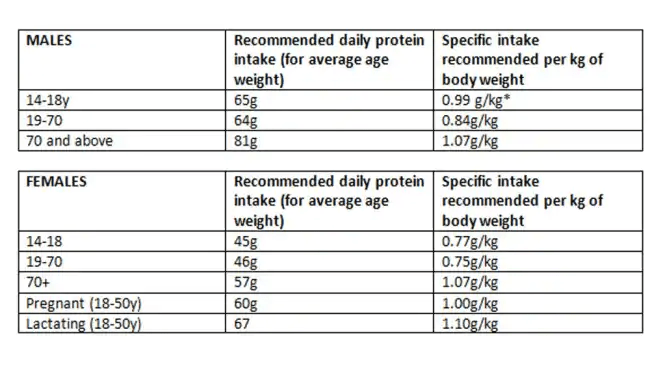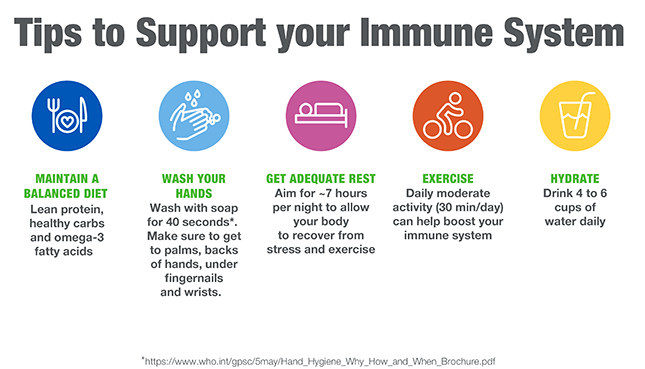
The benefits of protein for your health are clear. It provides fuel for a working body, keeps you feeling full, helps repair tissue damage, reduces the risk of cancer, and helps your heart work better.1 It is required for protein synthesis, which is necessary for the formation of muscle, and it helps the body in repairing tissues that are damaged by age or disease. Proteins also play an important role in the development of bones and joint health. New studies have indicated that a daily protein intake of about two grams per pound of bodyweight is beneficial in maintaining muscle mass and preventing the loss of muscles during exercise. This means that the benefits of protein on overall health are not necessarily restricted to people who are extremely overweight.2
Other research has indicated that protein has the potential to enhance the healing process of wounds, as well as being able to prevent the formation of tumors in cancer patients. The benefits of protein on overall health may also relate to the improvement of the immune system. A deficiency in protein has been associated with an increased risk of infection, and research indicates that protein supplementation is beneficial in diseases such as Alzheimer’s disease.
There are a number of different sources of protein that all serve the purpose of improving the health of the person who consumes them. Animal meat is the primary source of protein, and although protein has the potential to improve the overall health of an individual, excessive consumption of red meat may lead to serious health problems, including hypertension, obesity, and diabetes. A variety of plant-based protein sources are recommended for those people who are interested in the benefits of protein on overall health.
What is the Average Daily Protein Intake?
Among Americans, people eating a high protein diet including eating mostly vegetables, fruits and legumes appear to be physically healthier and have fewer health complications and signs of cancer than people eating high protein diets including eating mostly red meat. The consumption of more protein and less fat was associated with a decreased risk of inflammatory diseases, and higher quality of life.3 Although research is still ongoing, these findings suggest that people eating a less fat and high protein diet may reap other health benefits.
It is important to note that a high protein intake can be appealing to people who want to lose weight, especially athletes. The type of athlete and the amount of time they spend in training both matters. As a rule, athletes eating high protein foods and lean meats need to consume more protein.4 On the other hand, for people who are not active or do not spend a lot of time in the gym, eating a high protein and low carb diet can be tricky. However, it is a beneficial change in your eating pattern and may provide long-term weight loss.
The Benefits of Protein For the Immune System
If you’re wondering about the benefits of protein for the immune system, then there are a few things that you need to know. This is an important nutrient that helps the body fight off infections and is found in many proteins including the ones that make up meats. It can also be found in some dairy products.5 For most people, however, it isn’t something that they consume enough of. A balanced diet can provide the protein benefits that they need but it can be difficult to get all of the nutrients from foods alone. Whey protein supplements can help to provide those nutrients so a person doesn’t miss out on the benefits of protein.6
It can be difficult to get the proper amount of protein if you’re not eating a healthy diet or if you’re an athlete or participating in special exercises. Even people who eat a healthy diet aren’t getting enough protein because the protein comes in tiny little bits. Protein shakes are quick and easy to make at home and they help to get the right amount of protein to the body quickly. The best protein benefits for the immune system are going to be seen when the body is actually digesting the food rather than just absorbing it through the digestive system. This is why whey protein is so popular. It’s very easy for the body to break down and absorb.
The protein benefits for the immune system are clear but the benefits of protein, in general, are still debatable. Some experts think that there may be some benefits, but others say that the benefits of protein don’t really exist at all. However, some studies have been done that show some benefits of protein for the immune system and they do provide some proof that it can help to strengthen the body against viruses and diseases. It’s just a matter of getting enough protein into the body daily to get the necessary amounts for maximum benefits.
Benefits of Protein for Disease Prevention
Protein helps in building muscle, tissue repair, regulation of body hormones, and keeping the skin and nails healthy. But did you know that it is also an important source of energy and the best source of nutrition? When consumed, protein helps our bodies to function at an optimum level to prevent the onset of many diseases and illnesses.
It is the protein that is responsible for many of our daily functions and without which we would not be able to survive. Without protein, our cells would quickly deteriorate and we would succumb to disease, premature aging, and poor health. There is a reason why protein is referred to as the “nutrient” of choice; because of its ability to boost the immune system and maintain proper cell functionality and function.
The most beneficial proteins include those derived from plant sources and fish.7 Eggs, soybeans, red meat, nuts, and cheese are all excellent sources of protein that are great for supporting good overall health and the prevention of disease. For those who are unable to eat enough protein, supplements can also be taken to augment the intake and provide the benefits of protein for disease prevention.
The Benefits of Protein For Healthy Skin
There are many benefits of protein for healthy skin. If you suffer from acne, oily skin can make you break out more frequently and even lead to more serious health conditions. This is because it traps bacteria within the pores of the skin which causes pimples to form and leads to clogged pores. When you eat more protein, your body will have to produce more of an enzyme that helps to break down protein.
Other benefits of protein intake and skincare include the reduction of cellulite and helps keep skin looking toned. Reducing cellulite reduces the bags and dimples that occur as a result of excessive weight. It is not a bad idea for women to get cellulite massages to improve their skin tone.
Many people who are not interested in dieting or exercising and just want to stay healthy, do well to include some protein intake into their everyday diet. There are many benefits of protein for skincare. This includes the reduction of cellulite, improvement in skin tone, healthy weight management, and reduction in allergies. The best protein sources are beans (black beans, kidney beans, lentils), meat, nuts, fish, mushrooms, and dairy products. This means including plenty of protein-rich foods to help improve your overall health and prevent the signs of aging.
Image Credits
Body + Soul / November 22, 2017
Herbalife Nutrition / 2021
Good Housekeeping / June 25, 2020
1 “10 Science-Backed Reasons to Eat More Protein – Healthline.” 8 Mar. 2019, https://www.healthline.com/nutrition/10-reasons-to-eat-more-protein Accessed 30 Jun. 2021.
2 “Why Is Protein Important In Your Diet? | Piedmont Healthcare.” https://www.piedmont.org/living-better/why-is-protein-important-in-your-diet Accessed 30 Jun. 2021.
3 “How Much Protein Is Simply Too Much? | SCL Health.” https://www.sclhealth.org/blog/2019/07/how-much-protein-is-simply-too-much/ Accessed 30 Jun. 2021.
4 “How much protein do you need every day? – Harvard Health.” 18 Jun. 2015, https://www.health.harvard.edu/blog/how-much-protein-do-you-need-every-day-201506188096 Accessed 30 Jun. 2021.
<sup<5 “Eat Protein to Boost Your Immune System. Here’s How Much You ….” 1 Sep. 2020, https://thebeet.com/eat-protein-to-boost-your-immunity-heres-exactly-how-much-you-need/ Accessed 30 Jun. 2021.
6 “Effect of dietary protein and amino acids on immune function – PubMed.” https://pubmed.ncbi.nlm.nih.gov/2105184/ Accessed 30 Jun. 2021.
7 “A Nutritionist’s Guide to Plant-Based Protein – Healthline.” https://www.healthline.com/health/nutritionists-guide-to-plant-based-protein Accessed 30 Jun. 2021.



